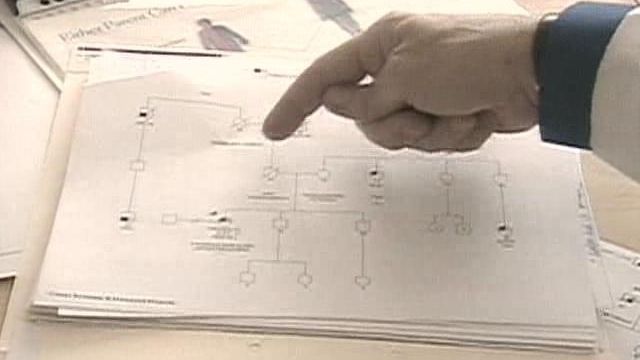Health Team
Study Reveals Cancer Test Methodology Missed Some Women
Depending on family history of cancer missed women who had many uncles and few aunts.
Posted — UpdatedRALEIGH, N.C. — People who have a mutation of a particular gene called BRCA are at a much higher risk for breast and ovarian cancer than the general population. To find out if women had the gene, doctors have tested only women who had a family history of breast cancer.
A new study shows, however, that family history may not tell the whole story.
Michelle Rakoff was 40 years old when she discovered she had breast cancer. She had no family history of the disease.
“I went for my first mammogram and, sure enough, they found a small cancer,” Rakoff said.
In what has been the usual protocol up until now, a family history prompts a test for the breast cancer gene, and a positive test helps doctors know to treat the cancer more aggressively and to look out for ovarian cancer as well. That is why no one tested Rakoff.
A new study, reported in the Journal of the American Medical Association, looked at more than 1,500 women with breast cancer. It revealed a problem with relying on family history alone to order a genetic test.
“We have a woman who's, let's say, 41 years old with a breast cancer, but her dad had only brothers. So how the heck were we ever going to see this trait coming down dad's side of the family?” said Dr. Jeffrey Weitzel of the City of Hope Cancer Center in Duarte, Calif. He was the lead author of the study.
That's called limited family structure, the situation in which there aren't enough women to tell if the BRCA gene mutation is present.
Researchers found that almost 14 percent of the patients in the study with limited family structure had the genetic marker for breast cancer. That was compared with about 5 percent of women with adequate family structure, meaning that at least two female relatives survived past age 45.
“What we showed was that if you had a limited family structure, not enough women in the family to help see the trait, that you were three times more likely to be a carrier,” Weitzel said.
Michelle Rakoff did not have the genetic marker, but she said she wants women to know “that you can get a genetic mutation through the line of your father as well as your mother.”
Among all women with breast cancer, only one woman in 20 has the breast cancer gene mutation. Among younger breast cancer patient, however, that percentage is higher.
The result is that if you are diagnosed with breast cancer when you are under age 50, getting a genetic test could save your life by telling doctors how to treat your disease.
• Credits
Copyright 2024 by Capitol Broadcasting Company. All rights reserved. This material may not be published, broadcast, rewritten or redistributed.





